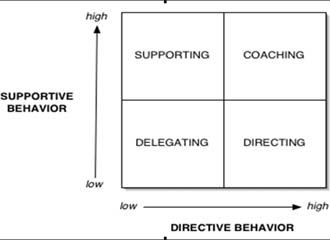By Jeffrey Lindsey
Tell me and I will forget; Show me and I will remember; Let me do and I will understand. — Chinese Proverb
There is a common theme among the leaders in fire-based EMS — where are tomorrow’s leaders?
The demands on company officers, battalion chiefs, and chief officers are ever more increasing in today’s world. Part of the responsibilities of the current leaders in fire-based EMS is to mentor the future leaders.
So what does fishing have to do with leadership? An ancient proverb said, “Give a man a fish and feed him for a day, teach a man to fish and feed him for life.”
So often as leaders, we feel compelled to do all the tasks ourselves; it can be because it simply seems easier for us to do so or we just don’t think someone else can do it as well.
Whatever the case may be, when we do this we are feeding the future personnel. When we allow them to actually do the task, we are teaching them to fish.
One of my first supervisors, who was an ED doctor, gave me an analogy that has stayed with me throughout my career.
He said if I was carrying his inexpensive stereo and was going to fall, he would let me so I could learn from the mistake.
However, if I was carrying his expensive china, he would catch me and prevent my fall from destroying his fine china.
We need to learn to allow others to make mistakes and then counsel them on how to prevent such a similar situation in the future.
Here are a few areas to consider as you either learn to fish or teach someone to fish.
First, you should identify your leadership style. Much like education styles, each of us has a leadership style.
This not only denotes how we lead, but how we follow or respond to a leader.
Depending on the resource, there are many different types of leadership styles. The following diagram illustrates where we fall in the auspices of our own leadership style.
 |
You can determine your leadership style by taking an assessment. The following links are just two of the sites that offer this type of assessment: Your Leadership Legacy and this leadership test.
Your tackle box
Once you have determined your leadership style, you know where your weak areas and strong areas are, and can focus on improving your leadership abilities.
As part of learning to fish, you need to establish a resource library. There are great books that discuss leadership that can have a positive influence and give you the reference to your leadership abilities. The books I recommend are:
“The Power of Ethical Management” by Kenneth Blanchard and Norman Vincent Peale is an excellent book that helps you understand what to do when you are in a role where your supervisor has established a working environment that does not fit your moral standards.
“Who Moved My Cheese” by Dr Spencer Johnson is an excellent book that illustrates how we get in a rut doing the same thing, day in and day out, with the same frustrating results. Life is about decisions; this book provides the insight how we can get caught up in the daily routine and how we can avoid it.
“Good to Great” by Jim Collins is one of the books that provides the foundation of running an organization or any situation where you are managing people. You need the right seats on the bus with the right people in the seats in order to have a great organization. There are many good organizations, but there are few great organizations. This book will provide the scientific basis to creating that great organization.
There are a number of other great books to add to your library including “It’s Your Ship” by Captain D. Michael Abrashoff, “QBQ” by John Miller, “Outliers” by Malcolm Gladwell, “Grown Up Digital” by Don Tapscott, “Sources of Power” by Gary Klein, “How Starbucks Saved My Life” by Michael Gill, and “How to Win Friends and Influence People” by Dale Carnegie.
Summary
As you move forward in your career, you will always have someone to answer to and you will always have someone to lead. You don’t have to have rank to fulfill either of these roles. When we learn to fish, the world opens up a different light than how you see it today.
About the author
Dr. Jeffrey Lindsey is an Assistant Professor in Emergency Health Services at George Washington University. He retired from the fire service as the Fire Chief for Estero Fire Rescue. Additionally, he serves as the education coordinator for 24-7 EMS and author for Brady Publishing. He is an experienced leader, educator, lecturer, author, and consultant in emergency services. Dr. Lindsey earned his doctorate and master’s degree in Curriculum and Instruction from USF.
He holds a bachelor’s degree in Fire and Safety Engineering from the University of Cincinnati, and an associate in paramedicine from Harrisburg Area Community College. Dr. Lindsey has more than 29 years of diverse experience in the emergency services industry. He is an associate member of the Prehospital Research Forum. He serves as an Advisory Council member for the National EMS Advisory Council and the State of Florida EMS, and a representative to the Fire and Emergency Services Higher Education EMS degree committee.












